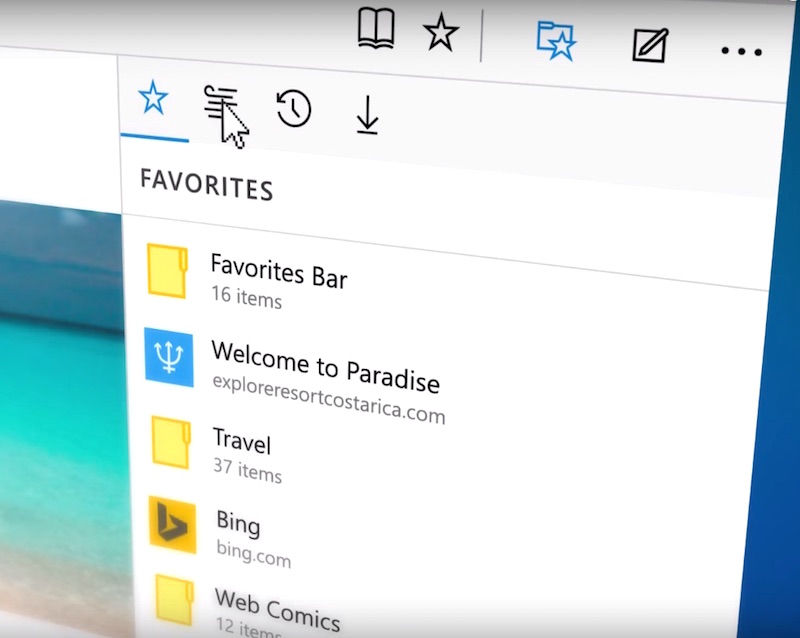Microsoft Edge Browser Gets EdgeHTML 13; Blocks Support for Toolbars

Microsoft has announced that it has implemented a new rendering engine in Microsoft Edge, the new default Windows browser it introduced with Windows 10, to combat a number of browser-based abuses and attacks. The company says with the changes attackers will not be able to use third-party applications to install toolbars on Edge.
The November update that Microsoft rolled out last week, in addition to a number of features to Windows 10, and release of Cortana in India, also offered major changes to the company's Edge Web browser. Chief among these changes was introduction of EdgeHTML 13, a rendering engine.
The engine prohibits injection of unauthorised extensions (usually found in the form of Dynamic-Link Library). The browser's resilience against unauthorised DLLs also results in an interesting addition: attackers won't be able to install toolbars using a third-party application. This is because developers often resort to injecting DLLs into a browser's process to bypass the built-in interfaces for settings controls.
"The attacker is trying to colonise the browser, and loading DLLs provides the attacker with a handy cargo pallet full of supplies. Blocking unauthorised DLL injection makes browser exploits more difficult and more expensive for attackers to carry out," wrote Crispin Cowan, Senior Program Manager, Microsoft Edge in a blog spot. The company said that Microsoft Edge is the only Web browser to have this feature.
Since its inception, Microsoft has made major changes to its Web browser to make it harder for attackers to change settings in it - usually search results, engine, and other Web content from third-party extensions. Earlier this year, it announced that it was going to kill support for binary extensibility models such as ActiveX on Edge.
While blocking toolbars could significantly improve the overall security of a Web browser, it also means that users who wish to use toolbars cannot as this capability has been fully blocked. "Edge does not currently support toolbars," a Microsoft spokesperson told Gadgets 360 in an emailed statement on Tuesday.
When we asked the company if it plans to give users the ability to install toolbars on Microsoft Edge, it declined to comment but reiterated that Edge will get support for extensions in a future update. "However, because part of the customer promise of Microsoft Edge is a personal experience, we are bringing support for extensions to Microsoft Edge in a future update."
A source familiar with the matter told Gadgets 360 that the company is currently figuring out safer ways to allow users to install toolbars on Edge.
For the latest tech news and reviews, follow Gadgets 360 on X, Facebook, WhatsApp, Threads and Google News. For the latest videos on gadgets and tech, subscribe to our YouTube channel. If you want to know everything about top influencers, follow our in-house Who'sThat360 on Instagram and YouTube.
Related Stories
- Samsung Galaxy Unpacked 2025
- ChatGPT
- Redmi Note 14 Pro+
- iPhone 16
- Apple Vision Pro
- Oneplus 12
- OnePlus Nord CE 3 Lite 5G
- iPhone 13
- Xiaomi 14 Pro
- Oppo Find N3
- Tecno Spark Go (2023)
- Realme V30
- Best Phones Under 25000
- Samsung Galaxy S24 Series
- Cryptocurrency
- iQoo 12
- Samsung Galaxy S24 Ultra
- Giottus
- Samsung Galaxy Z Flip 5
- Apple 'Scary Fast'
- Housefull 5
- GoPro Hero 12 Black Review
- Invincible Season 2
- JioGlass
- HD Ready TV
- Laptop Under 50000
- Smartwatch Under 10000
- Latest Mobile Phones
- Compare Phones
- Itel A95 5G
- Samsung Galaxy M56 5G
- HMD 150 Music
- HMD 130 Music
- Honor Power
- Honor GT
- Acer Super ZX Pro
- Acer Super ZX
- Asus ExpertBook P3 (P3405)
- Asus ExpertBook P1 (P1403)
- Moto Pad 60 Pro
- Samsung Galaxy Tab Active 5 Pro
- Oppo Watch X2 Mini
- Garmin Instinct 3 Solar
- Xiaomi X Pro QLED 2025 (43-Inch)
- Xiaomi X Pro QLED 2025 (55-Inch)
- Nintendo Switch 2
- Sony PlayStation 5 Pro
- Whirlpool 1.5 Ton 3 Star Inverter Split AC (SAI18K38DC0)
- Whirlpool 1.5 Ton 5 Star Inverter Split AC (SAI17B54SED0)

















